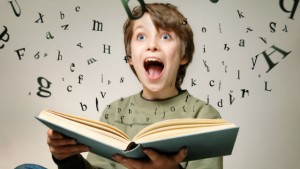Home » Commentary » Opinion » Learning to learn to read
· Ideas@TheCentre
 Reading seems so straightforward. Skilled reading is unconscious and automatic – most people are not aware of the complex cognitive processes taking place. Few adults remember how they learned to read, so when it comes to working out how to help their children they will often look to the experts. Unfortunately, advice to parents is often confusing and contradictory.
Reading seems so straightforward. Skilled reading is unconscious and automatic – most people are not aware of the complex cognitive processes taking place. Few adults remember how they learned to read, so when it comes to working out how to help their children they will often look to the experts. Unfortunately, advice to parents is often confusing and contradictory.
It is not simply a case of ‘read to children and they will learn to read’. This is the trap of whole language teaching methods. For children to make the connection between the strange black shapes on the page and the words they hear and say, they have to be explicitly taught.
But even before this happens, children need to develop a large store of words that they can understand and use — a large ‘receptive’ or oral vocabulary. Recent studies found that around 20% of Australian children starting school have poor language skills. They do not speak clearly, and they know and use a limited number of words.
The best way to develop these skills in children is through adult-child spoken interaction and through shared reading. Both of these are important. Spoken interaction provides children with models and guidance of how to pronounce words properly and gives them immediate information about the world around them. Clear speech also develops phonological awareness — the ability to identify the distinct sounds in spoken words — which is strongly related to the ability to decode words using phonics.
Shared reading — defined as reading with rather than reading to children — is essential; firstly because it introduces the concepts of the written alphabet and printed text, and secondly because books expose children to a wider range of words and language structures generally used in speech. Vocabulary can be conceived broadly as general knowledge. To know what the word ‘planet’ means, is to know what a planet is. Vocabulary and general knowledge are fundamental to reading comprehension, which is the end-game for learning to read.
Parents should not be expected to teach their children to read. But it will help to break the cycle of low literacy if children arrive at school well prepared to learn to read. If, ideally, they then have evidence-based reading instruction in the first few years of school, Australia will be well on the way to fixing its persistent literacy problems.
Learning to learn to read